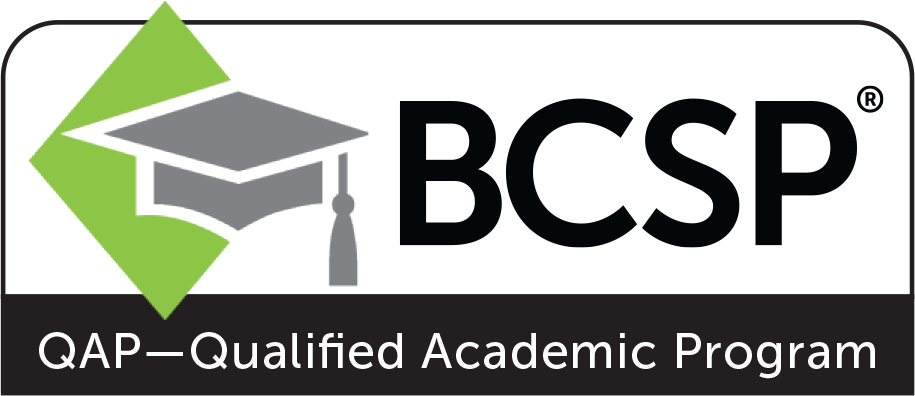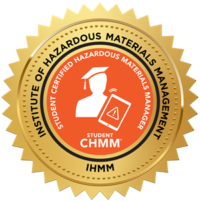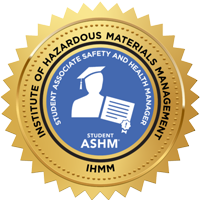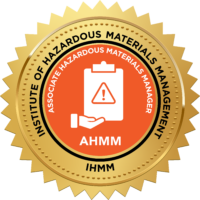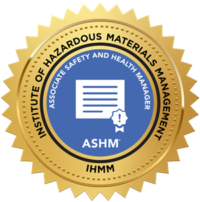Qualified Academic Program (QAP)
Qualified Academic Program (QAP)
The Bachelor of Science in environmental health and safety is recognized as a Qualified Academic Program (QAP) by the Board of Certified Safety Professionals (BCSP), meeting the qualified credential requirement for the Certified Safety Professional (CSP) certification. Graduates of the degree program are eligible to apply for the Graduate Safety Practitioner (GSP) designation, an entry-level professional credential that can be used to apply for the CSP once graduates meet the other requirements.
Student Certified Hazardous Materials Manager (ST/CHMM)
Student Certified Hazardous Materials Manager (ST/CHMM)
IHMM’s Student Certified Hazardous Materials Manager (ST/CHMM™) credential recognizes students who wish to demonstrate their development of knowledge and skills in hazardous materials management while pursuing their undergraduate or graduate degree. Student CHMMs are also eligible for IHMM’s Dr. John H. Frick Memorial Scholarship, a $32,000 program to assist student certificants with the costs of their education.
The Bachelor of Science in environmental health and safety has an approved curriculum for the Student CHMM credential from the Institute of Hazardous Materials Management (IHMM). You can apply for the ST/CHMM while pursuing your undergraduate studies.
After you graduate with your Student CHMM designation, you graduate to the Associate Hazardous Materials Manager (AHMM) designation.
Student Associate Safety and Health Manager (ST/ASHM)
Student Associate Safety and Health Manager (ST/ASHM)
IHMM’s Student Associate Safety & Health Manager (ST/ASHM™) credential recognizes students who wish to demonstrate their development of knowledge and skills in safety and health management in the workplace while pursuing their undergraduate or graduate degree. Student ASHMs are also eligible for IHMM’s Dr. John H. Frick Memorial Scholarship, a $32,000 program to assist student certificants with the costs of their education.
The Bachelor of Science in environmental health and safety has an approved curriculum for the Student ASHM credential from the Institute of Hazardous Materials Management (IHMM). You can apply for the ST/ASHM while pursuing your undergraduate studies.
After your Student ASHM designation, you earn your Associate Safety & Health Manager (ASHM) designation along with your degree.
Associate Hazardous Materials Manager (AHMM)
Associate Safety & Health Manager (ASHM)



